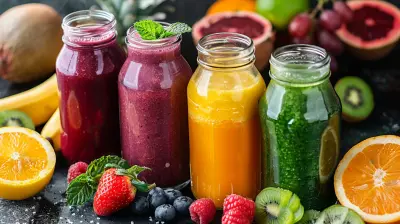Simple Lifestyle Changes for a Happier Gut
13 October 2025
Your gut health is more important than you might think. It’s not just about digestion—your gut plays a massive role in your immunity, mood, and overall well-being. If your gut is happy, chances are the rest of your body will be too.
So, how do you keep your gut in top shape? The good news is that you don’t need a drastic overhaul. Small, simple lifestyle changes can make a world of difference. Let’s dive into some easy but effective ways to support a happier gut.
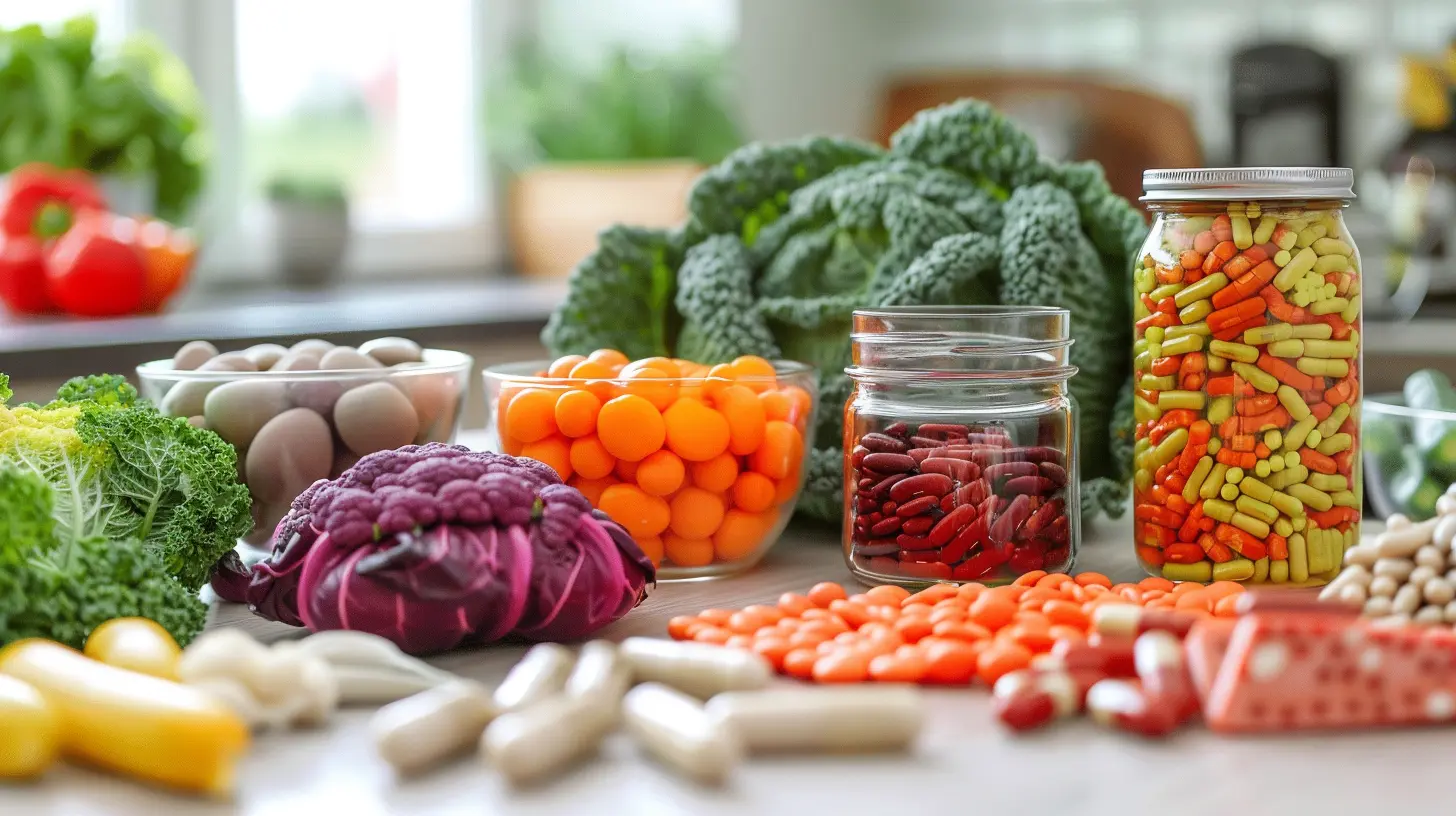
1. Eat More Fiber—Your Gut Loves It
Think of fiber as your gut’s best friend. It feeds the good bacteria in your gut, keeping your digestion smooth and your microbiome balanced.Where Can You Get More Fiber?
- Fruits and Vegetables: Apples, bananas, berries, broccoli, carrots—you name it.- Whole Grains: Oats, quinoa, brown rice, whole wheat bread.
- Legumes: Lentils, beans, chickpeas, peas.
- Nuts and Seeds: Almonds, chia seeds, flaxseeds.
By simply adding more fiber to your plate, you can help your gut bacteria thrive. But remember—go slow! Too much fiber too fast can lead to bloating and discomfort. Let your gut adjust gradually.
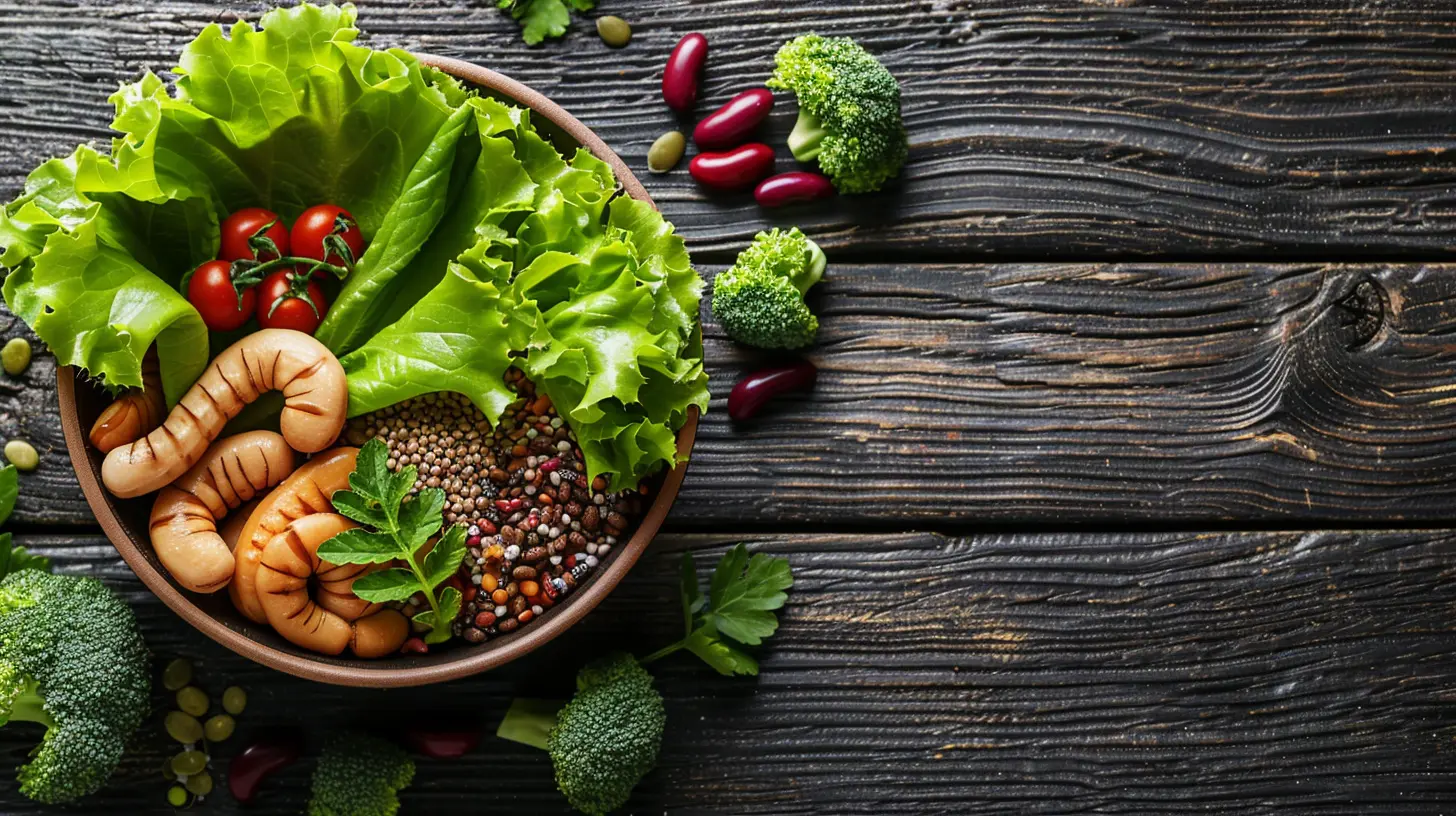
2. Stay Hydrated—Water Works Wonders
You’ve heard it a million times, but it’s worth repeating—drink water! Your gut needs hydration to keep things moving smoothly.How Does Water Help?
- It aids digestion by softening stools, preventing constipation.- It supports the mucosal lining of your intestines.
- It helps transport nutrients to your cells efficiently.
Aim for at least 8 glasses a day, but if you’re active or live in a hot climate, you might need more. And if plain water feels boring, try herbal teas, infused water, or even broths for a hydration boost.
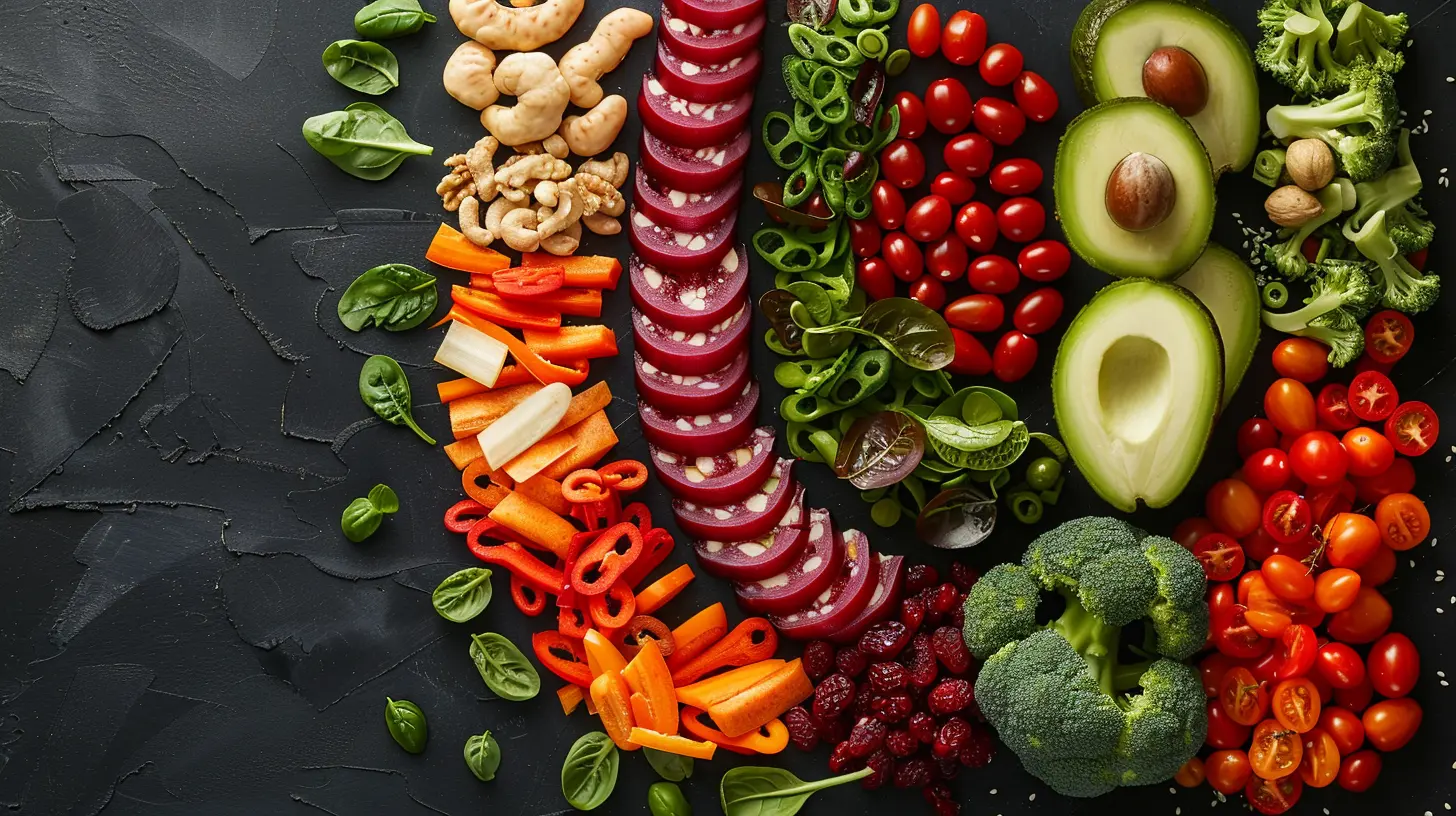
3. Cut Back on Processed Foods
Highly processed foods can wreak havoc on your gut. They often contain artificial additives, preservatives, and refined sugars that may promote bad bacteria while damaging the good ones.What Should You Limit?
- Sugary drinks and snacks- Fast food and fried items
- Packaged junk food
- Artificial sweeteners
Instead, opt for whole, natural foods as often as possible. The fewer ingredients on the label, the better!
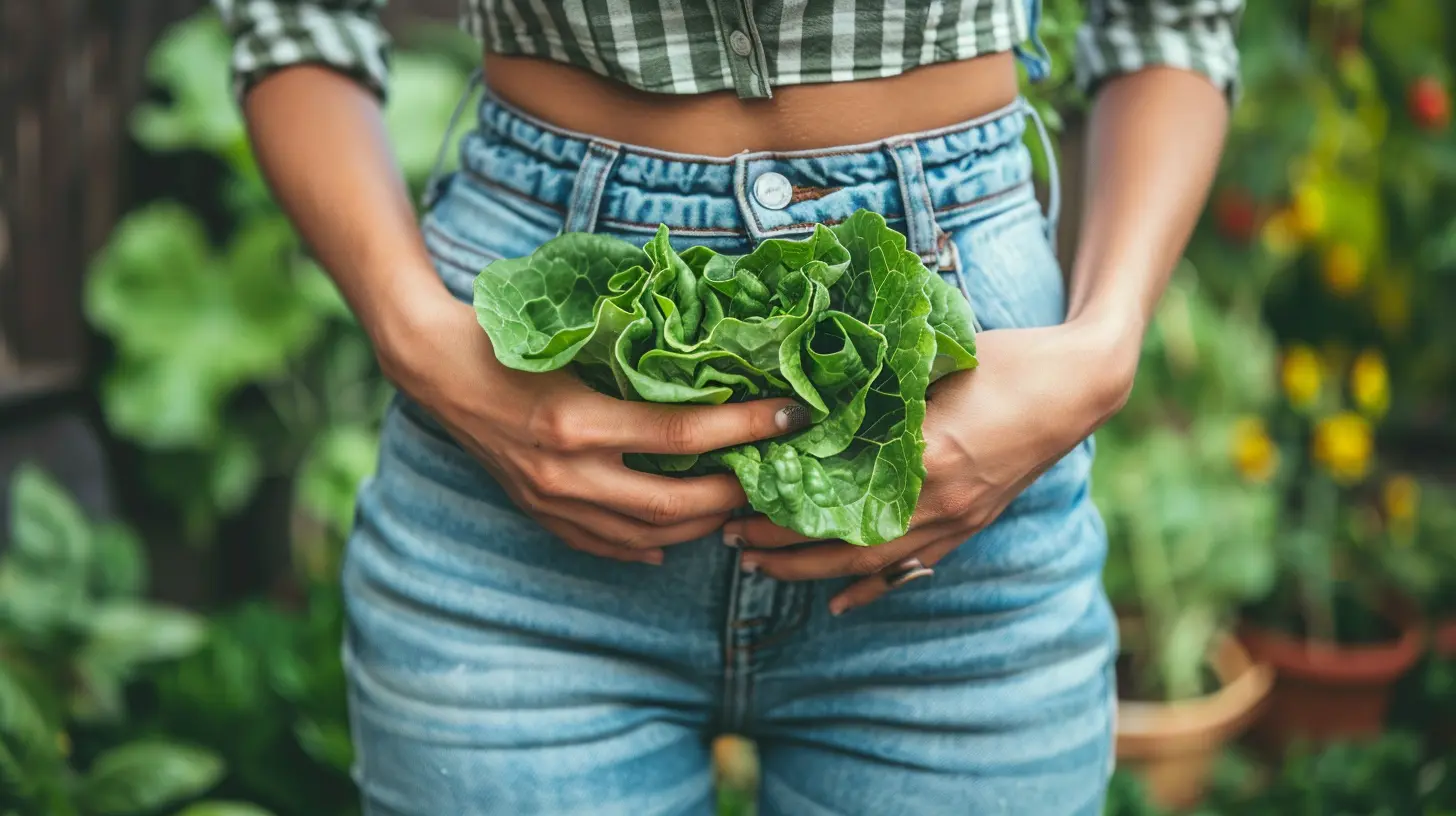
4. Embrace Fermented Foods—Hello, Probiotics!
Fermented foods are packed with probiotics, the good bacteria that help your gut function at its best.Great Sources of Probiotics:
- Yogurt (look for ones with live cultures)- Kimchi
- Sauerkraut
- Kefir
- Miso
- Kombucha
Adding just a small serving of fermented foods to your diet each day can work wonders for gut balance.
5. Manage Stress—Your Gut Feels It Too
Believe it or not, stress affects your gut just as much as it affects your mind. Ever had an upset stomach before a big event? That’s your gut-brain connection in action.Simple Ways to Reduce Stress:
- Practice Deep Breathing: A few deep breaths can calm your nervous system.- Move Your Body: Exercise releases endorphins, which help regulate digestion.
- Get Enough Sleep: Poor sleep is a gut disruptor. Aim for 7-9 hours.
- Try Meditation or Yoga: Mindfulness practices can relax both you and your gut.
Managing stress isn't just good for your mental health—it’s essential for a happy, balanced gut.
6. Chew Your Food—Seriously!
We often rush through meals without thinking about it, but chewing properly is a game-changer for digestion.Why Does Chewing Matter?
- It breaks food down, making digestion easier.- It signals your stomach to release digestive enzymes.
- It helps you absorb nutrients better.
Next time you eat, slow down. Savor your food, chew thoroughly, and let your gut do its job effortlessly.
7. Try a Prebiotic Boost
Probiotics get all the attention, but prebiotics are just as vital. These are types of fiber that feed the good bacteria in your gut.Best Prebiotic Foods:
- Garlic- Onions
- Leeks
- Asparagus
- Bananas
- Chicory root
Think of prebiotics as fertilizer for your gut garden—helping the good bacteria grow and flourish.
8. Move More—Exercise Helps Your Gut
Exercise isn’t just for weight loss or muscle gain. It also improves gut health.How Does Exercise Benefit the Gut?
- It promotes diversity in gut bacteria.- It helps regulate digestion.
- It reduces inflammation in the gut.
You don’t have to run marathons—just 30 minutes of daily movement (walking, yoga, cycling, or even dancing) can do wonders for your gut and overall health.
9. Cut Back on Antibiotics (Unless Necessary)
Antibiotics are lifesavers when needed, but they also wipe out good gut bacteria alongside the bad ones. If you must take antibiotics, try to replenish your gut afterward with probiotics and fiber-rich foods.
10. Listen to Your Gut
Your gut has a way of telling you when something’s off. Bloating, constipation, diarrhea, or frequent discomfort could be signs that your microbiome needs some TLC.Pay Attention To:
- How certain foods make you feel.- Whether stress triggers digestion issues.
- Your bathroom habits (yes, it matters!).
If gut issues persist, consider seeing a healthcare professional to rule out any underlying conditions like IBS, food sensitivities, or leaky gut syndrome.
Final Thoughts
A happier gut doesn’t require drastic measures—just small, mindful changes in your daily habits. Eat real food, drink enough water, manage stress, and move your body. Your gut will thank you, and you’ll feel the difference in your energy, mood, and digestion.Start with a few of these changes today, and before you know it, you’ll have a healthier, happier gut for the long haul!
all images in this post were generated using AI tools
Category:
Bowel HealthAuthor:

Sophia Wyatt
Discussion
rate this article
1 comments
Ashley McConnell
Uncover hidden secrets: even small shifts can unlock your gut's true happiness.
October 25, 2025 at 4:47 PM

Sophia Wyatt
Absolutely! Small changes can have a big impact on gut health and overall happiness. Let's explore these simple yet effective lifestyle shifts together!


